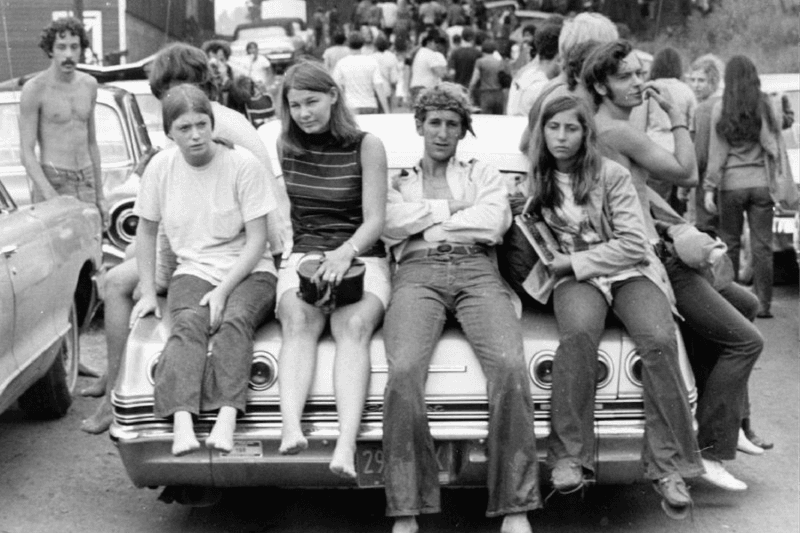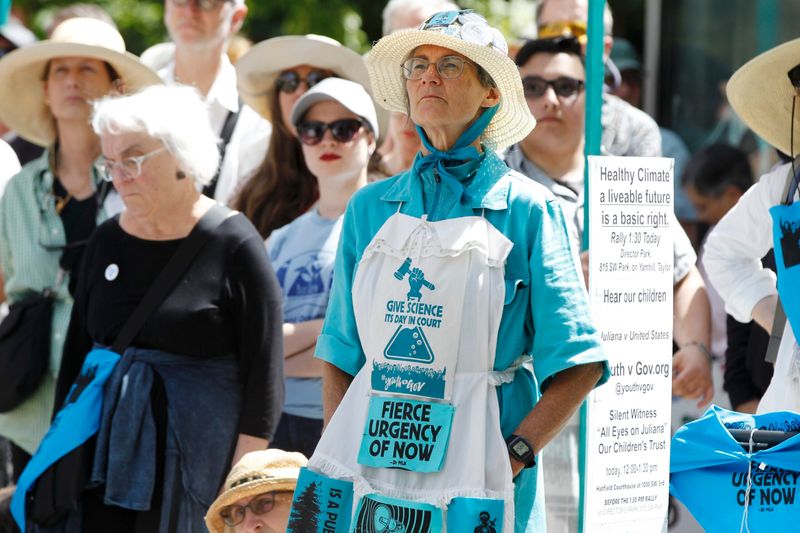Explore a compelling breakdown of common misconceptions about the Baby Boomer generation. This blog post delves into 17 myths, unraveling their origins and contrasting them with reality. From financial struggles to technological advancements, discover how these myths often oversimplify or misrepresent the diverse experiences of Boomers. With each section, we aim to provide a nuanced perspective, highlighting not only the challenges Boomers faced but also their significant contributions to society. Let’s journey through these myths and uncover the truths behind them.
1. Boomers Had It Easy Financially
Many believe Baby Boomers sailed through a golden economic era. Yet, while some enjoyed post-war prosperity, others encountered economic turbulence. The 1970s and 1980s were marked by soaring interest rates and stagflation. Imagine facing 18% mortgage rates! Wages haven’t matched inflation for decades, affecting their financial stability. Boomers navigated recessions, just like any generation. The reality isn’t uniform across all Boomers. Economic boons were often offset by financial hurdles, painting a picture far from universally rosy. Their financial journey was a mix of highs and lows, challenging the myth of effortless prosperity.
2. They Could Afford College Working Part-Time
The myth that Boomers could effortlessly pay for college with part-time jobs oversimplifies history. In 1970, public college tuition was indeed cheaper—averaging $394 annually, equivalent to $2,800 today. However, students then grappled with minimum wages of just $1.60 per hour, mirroring $11.40 in today’s currency. Many Boomers worked tirelessly, balancing academics with demanding jobs, yet college affordability was still a stretch for many. Despite lower tuition, financial strain persisted. The image of carefree, easily-funded education ignores the sacrifices countless Boomer students made to pursue higher learning.
3. Boomers Ruined the Housing Market
The notion that Boomers single-handedly destroyed the housing market doesn’t capture the complexity of the issue. While they became homeowners during economic booms, various factors contributed to current housing woes. Zoning laws, corporate investments, and stagnant wages are significant players in today’s market challenges. Many Boomers find themselves house-rich but cash-poor, unable to sell due to financial constraints. The myth simplifies a multifaceted problem into a generational blame game, overlooking broader economic forces at play. Their era’s housing success wasn’t universal, nor solely responsible for modern market dilemmas.
4. They Stole Social Security
Contrary to popular belief, Boomers didn’t plunder Social Security funds for personal gain. They contributed to the system throughout their working lives, expecting it to support them post-retirement. The real issue lies in congressional mismanagement, where funds were redirected without addressing long-term sustainability. This myth unfairly targets a generation that largely played by the rules. The challenges facing Social Security today stem from systemic governance issues rather than individual actions. Understanding this distinction is crucial for addressing future reform and ensuring fair treatment of all beneficiaries, including Boomers themselves.
5. Boomers Don’t Care About Climate Change
Painting Boomers as indifferent to climate change overlooks their pioneering efforts in environmental activism. The modern environmental movement, including the establishment of the EPA and Earth Day, was spearheaded by Boomers passionate about preserving the planet. Many continue to support green policies, although progress is often thwarted by corporate lobbying and political gridlock. The stereotype of apathy fails to acknowledge the diverse attitudes within the generation, many of whom remain committed to advocating for sustainable change. Their legacy includes both successes and ongoing challenges in the fight for environmental justice.
6. They Had Guaranteed Pensions
The perception that Boomers universally enjoyed secure pensions is misleading. In reality, only about 30% of Boomers in the private sector were ever covered by pension plans. Most depended on the more volatile 401(k) system, introduced as a cost-cutting measure by corporations. This shift placed the burden of retirement planning on individuals, exposing them to market risks. The narrative of guaranteed pensions simplifies a complex retirement landscape. Boomers navigated uncertain financial futures, challenging the myth of widespread retirement security. Their experiences reflect a broader trend of shifting economic responsibilities in corporate America.
7. Boomers Killed the Economy
Blaming Boomers for economic downturns, particularly the 2008 financial crisis, misplaces responsibility. The crash resulted from extensive Wall Street deregulation, initiated during Reagan’s era and expanded under Clinton. Average Boomers were not the architects of these policies. Instead, they endured the consequences of corporate and political decisions beyond their control. The myth simplifies a global financial catastrophe into a generational fault. By attributing blame solely to Boomers, this narrative ignores the roles played by various economic actors and systemic factors, contributing to a skewed understanding of past financial crises.
8. They Refuse to Retire
The belief that Boomers selfishly cling to jobs, blocking younger talent, overlooks the complexities of retirement decisions. Many Boomers remain in the workforce because they can’t afford to retire, faced with rising medical costs and insufficient savings. Others choose to continue working out of passion and purpose. The myth ignores personal and economic realities, presenting a one-dimensional picture of workforce dynamics. Boomers’ decisions to stay employed often reflect individual circumstances rather than generational stubbornness, underscoring the need for empathy and understanding in discussions about retirement and employment across age groups.
9. Boomers Are All Technologically Illiterate
The stereotype of Boomers as technologically inept fails to recognize their pioneering contributions to tech innovations. Icons like Steve Jobs and Bill Gates, both Boomers, revolutionized personal computing. Tim Berners-Lee, another Boomer, invented the World Wide Web. While some Boomers may struggle with new technology, many embrace it with enthusiasm and skill. This myth overlooks the diversity in technological adaptation among older generations. Boomers not only witnessed but actively shaped the digital revolution, challenging the simplistic notion of their technological illiteracy and highlighting their ongoing engagement with modern advancements.
10. They Had Stable Careers for Life
The idea that Boomers enjoyed lifelong job security misrepresents their professional realities. They experienced mass layoffs, offshoring, and a decline in union power, reshaping the employment landscape. Job-hopping became more common during their careers as industries evolved and globalization took hold. The myth of stable careers overlooks the adaptability and resilience Boomers demonstrated in navigating these changes. Their work lives were often marked by uncertainty and transformation, reflecting broader economic shifts. Challenging this myth reveals a generation’s capacity to endure and innovate in the face of evolving career challenges.
11. Boomers Are All Politically Conservative
The notion that all Boomers lean politically conservative dismisses their varied activist history. They took to the streets against the Vietnam War, championed civil rights, and were instrumental in launching LGBTQ+ movements. Today, Boomers are politically diverse, with nearly equal representation across the political spectrum. This myth oversimplifies a generation with rich, multifaceted political views. By examining their activism and ongoing civic engagement, it becomes clear that Boomers contributed significantly to social change and continue to shape political landscapes. Their political identities are as diverse as the causes they champion.
12. They Never Had Student Debt
The belief that Boomers escaped student debt is a misconception. Loans have existed since the 1960s, burdening many students. While tuition was lower, state funding cuts led to significant hikes in later decades, increasing financial strain. Boomers faced educational expenses, just like students today. The myth ignores the reality of student loans that impacted their financial journey. Understanding this context provides a more accurate picture of the sacrifices and investments Boomers made for education. Their experiences with debt reflect wider economic trends affecting access to higher education over the years.
13. Boomers Hoard All the Wealth
The idea that Boomers hoard wealth overlooks the nuances of economic disparity within the generation. Wealth concentration in the top 10% mirrors trends seen across all generations. Most Boomers are middle-class retirees living on limited savings. The myth simplifies a complex issue, ignoring the economic challenges many face in retirement. By exploring the real distribution of wealth, it becomes evident that Boomers are not monolithic in their financial status. Addressing systemic economic issues requires looking beyond generational stereotypes to understand broader trends in wealth inequality affecting society as a whole.
14. They Had Free Healthcare
The perception of free healthcare for Boomers is misleading. Employer-provided coverage wasn’t free; it was offset by lower wages. Medicare, while beneficial, didn’t cover everything, leading to gaps in coverage and financial strain. Medical bankruptcy was a real threat for many. The myth of free healthcare overlooks the financial sacrifices Boomers made for medical needs. Understanding the true costs and limitations of their healthcare experiences provides a more nuanced perspective on their economic realities. Examining these challenges reveals the complexity of healthcare systems and their impacts on generational financial stability.
15. Boomers Don’t Believe in Mental Health
The stereotype that Boomers dismiss mental health issues overlooks their role in destigmatizing therapy. Many fought to normalize seeking help, particularly from the 1970s to 1990s. The “suck it up” mentality is more reflective of the Silent Generation’s values. Boomers participated actively in changing attitudes towards mental wellness, advocating for openness and support. Their efforts laid the groundwork for today’s mental health conversations, challenging the myth of their indifference. Recognizing these contributions underscores the importance of acknowledging progress made by Boomers in the realm of mental health advocacy and awareness.
16. They Never Struggled to Find Jobs
The belief that Boomers never faced job struggles is unfounded. The 1970s and 1980s were periods of high unemployment, factory closures, and economic recessions. Many Boomers experienced difficulties finding stable employment. The myth oversimplifies a generation that navigated challenging economic landscapes. By examining their efforts to secure jobs amidst adversity, a more accurate narrative emerges. Boomers’ experiences highlight resilience in the face of market shifts and economic downturns. Understanding their employment challenges provides insights into broader workforce dynamics affecting multiple generations over time.
17. Boomers Had Perfect Childhoods
The nostalgic view of Boomers’ childhoods as perfect ignores historical realities. Many grew up under the constant threat of the Cold War, surrounded by environmental hazards like leaded gasoline and unsafe vehicles. Seat belts were rare, and safety standards were limited. These conditions shaped their early years, highlighting resilience in overcoming adversity. Romanticizing their youth glosses over significant challenges they faced. By examining these elements, a fuller picture of Boomer childhoods emerges, one marked by both fond memories and real struggles. This perspective challenges simplistic notions of idyllic, carefree youth during that era.

















